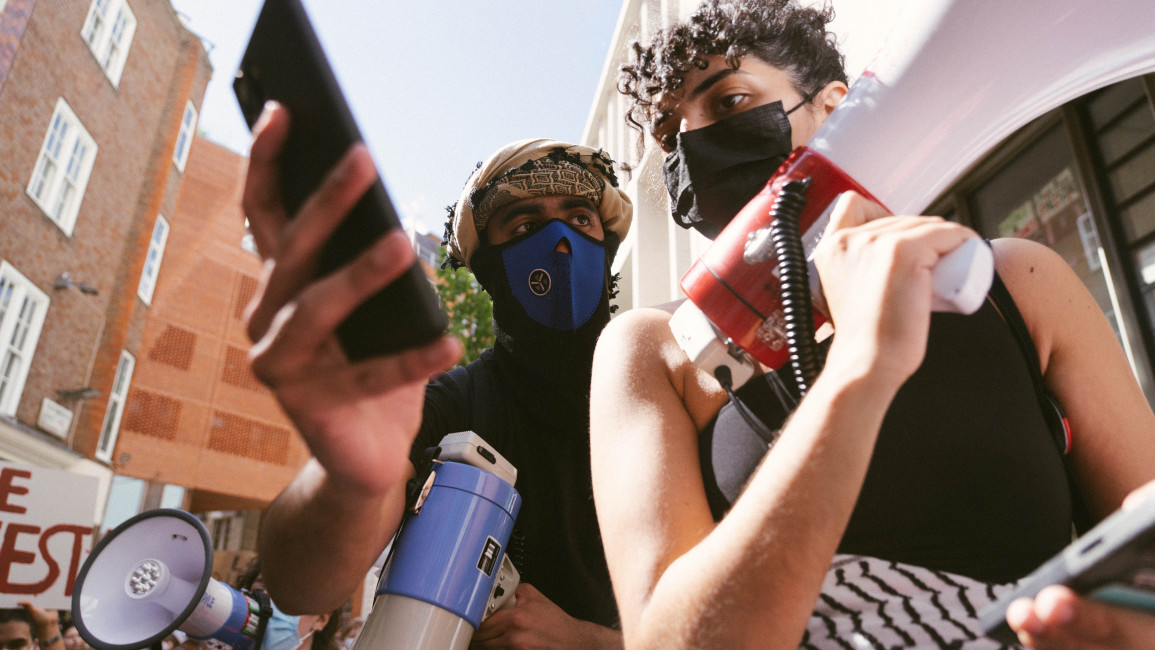Pro-Palestine student protesters undeterred by LSE 'violent' eviction of their encampment
Pro-Palestine student protestors say they are undeterred from pushing the London School of Economics (LSE) to break links to companies allegedly complicit in Israel's war on Gaza, despite the university severing talks on Tuesday a day after LSE became the first British university to evict a pro-Palestinian encampment following successful legal action.
Student activists from the university’s Palestinian Society had occupied the Marshall Building since May 14, immediately after publishing their ‘Assets in Apartheid’ report detailing the university’s £89 mln investment in companies allegedly affiliated with “genocide, arms trade, and climate breakdown" according to the students.
At the time an LSE spokesperson told the BBC, "We will carefully consider the report submitted by the protest group and respond in due course. We will also continue to engage in a peaceful dialogue."
However, activists say LSE has reneged on this promise after winning an eviction order from court.
"LSE management has unilaterally broken off negotiations with student protesters, despite promising in previous communications that they would commit to six weeks of negotiation, regardless of the status of the encampment," Ethan Chua, a master’s student in International and World History at the university and one of the movement’s press liaisons told The New Arab.
“We are continuing to push LSE to divest from crimes against the Palestinian people, particularly organizing around an upcoming vote by the LSE Council on divestment; to disaffiliate from institutions aligned with violators of international law; and to democratize decision-making processes," he added.
Chau admitted their defeat to LSE management in court due to the technicalities of property law, but questioned their innocence regarding international law.
"We’re reeling from the violence of this eviction, particularly the violence inflicted upon our community members who were physically assaulted during the eviction, as well as our Muslim siblings who have had to grapple with it during Eid al-Adha.”
'Unnecessary violence'
Another activist claimed violence by LSE security guards was “unnecessary and indiscriminate, including throttling, grabbing, throwing students to the ground - people were groped".
“On Friday 14 June the civil court granted LSE an interim possession order (IPO) to end the unauthorised occupation of the Marshall Building," an LSE spokesperson told The New Arab.
"During the closure of the encampment at LSE, five members of our Security staff were injured when a rush of protesters, both internal and external to LSE, entered the building...After registering our concerns with the protesters, they replied with counter-allegations. We have advised them to report any incidents so we can investigate thoroughly," the spokesperson said in response to the allegations.
What happens next?
At its broadest, Chua says they hope to unite “various movements in LSE for justice,” including for reform to the university’s Environmental and Social Governance policies, but also other such as fossil fuel divestment.
In practice, this commitment means long-term planning to ensure the pro-Palestine movement’s survival after its current activists graduate, including by ensuring younger students are involved and strengthening ties to faculty, the LSE Student Union, and other unions active on campus, including the UCU, UNITE, and UNISON.
Speaking to The New Arab earlier, Jeremy Corbyn, former leader of the Labour Party and MP for Islington North praised these efforts to create for a broader, unified movement to sustain their demands.
“You need to bring other movements in, not drive them away. [LSE’s pro-Palestine encampment] has brought people together for other demands as well, particularly on investments. So, it’s growing but it needs to grow quicker.”








 Follow the Middle East's top stories in English at The New Arab on Google News
Follow the Middle East's top stories in English at The New Arab on Google News
![Lebanon after strikes [Getty]](/sites/default/files/styles/image_330x185/public/2184409977.jpeg?h=a5f2f23a&itok=7wpfQMyI)
![G20 Brazil [Getty]](/sites/default/files/styles/image_330x185/public/2184389194.jpeg?h=a5f2f23a&itok=t1DchCMY)
